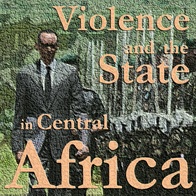This series takes as its focus the complex and unusual dynamics of violence in Central Africa. Although sometimes unfairly written off as a region of intractable conflict, kleptocratic big men, and hopelessly poor levels of governance, many regional experts now argue that Central Africa is undergoing a period of profound transition. Are the ‘Illiberal Statebuilders’ of Paul Kagame and Yoweri Museveni heralds of a new period of robust and durable state formation? Or merely the newest generation of patrimonial caretakers for states in terminal decline? Is the defeat of the M23 mutiny in Eastern Congo the last rebellion, or just the latest? And how has their defeat reshaped the social and political map of the region? We wish to give space here to the emerging debates about the connections between violence and security, the economy, politics, conflict-resolution, gender dynamics, and local governance.

And so it continues…: Rwandan refugees and the latest bilateral politicking in the Great Lakes

Violence and the State in Central Africa

